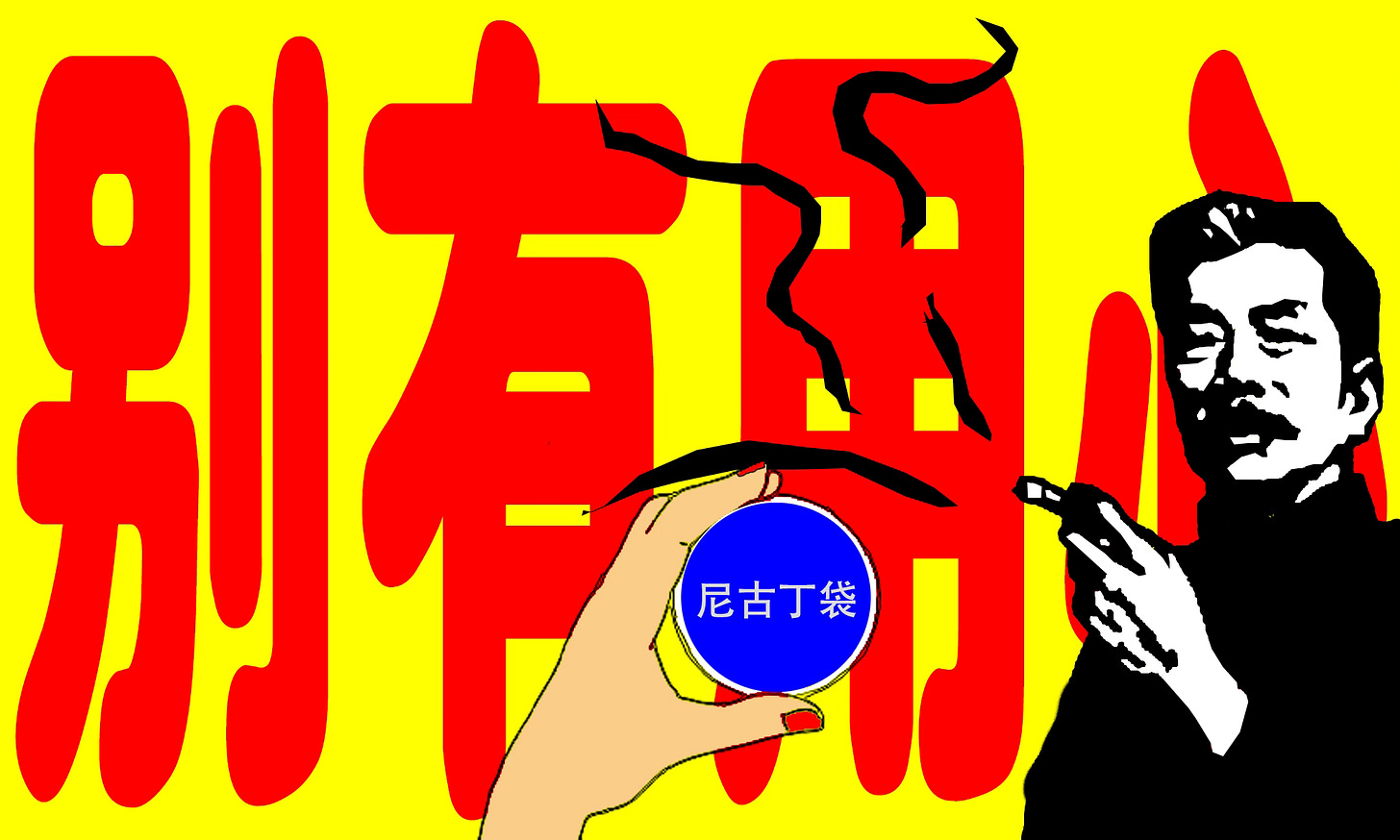"Ulterior motives" — Phrase of the Week
A critic of Lu Xun's smoking habit has other things in mind

Our phrase of the week is: "ulterior motives" (别有用心 bié yǒu yòng xīn)
Context
Officials at the Lu Xun Memorial Museum in Shaoxing, Zhejiang Province, have defended a mural depicting the famous Chinese writer smoking after a tourist complained it could mislead young people.
The museum's wall painting shows Lu Xun in traditional robes holding a cigarette. Visitors often pose there, lighting cigarettes or lighters for "lighting a cigarette for the master" social media posts.
On August 22, a tourist questioned the mural's appropriateness on social media, suggesting it be replaced with an image of Lu Xun with a clenched fist.
By the following Monday, after the post gained significant traction online, hundreds of people had contacted the museum to ask them preserve the artwork.
The discussion intensified when reports alleged the complainant promoted nicotine pouches through her social media account. Nicotine pouches are a smokeless tobacco alternative which is banned in China.
So this wasn’t just a straight-forward complaint:
"This might be exploited by those with ulterior motives to serve their hidden agendas."
这还可能被别有用心的人利用起来,达到其不可告人的目的。
zhè hái kěnéng bèi biéyǒu yòngxīn de rén lìyòng qǐlái, dádào qí bùkě gàorén de mùdì.
And with that, we have our Sinica Phrase of the Week.
What it means
"Ulterior motives" (别有用心) is an idiom meaning to have undisclosed intentions behind public statements or behaviours. The direct translation of its four characters is: "to have other" (别有), "intention" (用心).
The earliest traceable record appears in correspondence by Zhu Xi (朱熹, 1130-1200), the influential Neo-Confucian philosopher of the Southern Song Dynasty, though only in fragmented form rather than as the complete idiom.
The full expression emerged during the Qing Dynasty with the rise of vernacular novels. The earliest complete usage appears in the novel, Strange Tales Witnessed Over Twenty Years (二十年目睹之怪现状):
"Magistrate Wang also said his secretary was very reliable, but Wang had no idea of his ulterior motives."
王太尊也是说他办事可靠,那里知道他是别有用心的呢。
Wáng tàizūn yě shì shuō tā bànshì kěkào, nàlǐ zhīdào tā shì biéyǒu yòngxīn de ne.
Written by Wu Jianren (吴趼人), and published serially from 1903 to 1905, this novel is one of the four great "condemnation novels" (谴责小说) of late Qing literature, known for exposing official corruption, commercial fraud, and social hypocrisy.
At that time, Lu Xun was alive, and in his early 20s. Although it’s unlikely they ever met, both Lu Xun and Wu Jiren were part of China's literary awakening during the late Qing and early Republican transition.
Both writers used their words to expose social decay and corruption.
In modern Chinese, the phrase “ulterior motives” has a similar meaning to its original in Strange Tales. It carries connotations of hypocrisy and exploiting situations for personal gain — like complaining about someone’s smoking habit to promote nicotine pouches.
Andrew Methven is the author of RealTime Mandarin, a resource which helps you bridge the gap to real-world fluency in Mandarin, stay informed about China, and communicate with confidence—all through weekly immersion in real news. Subscribe for free here.



